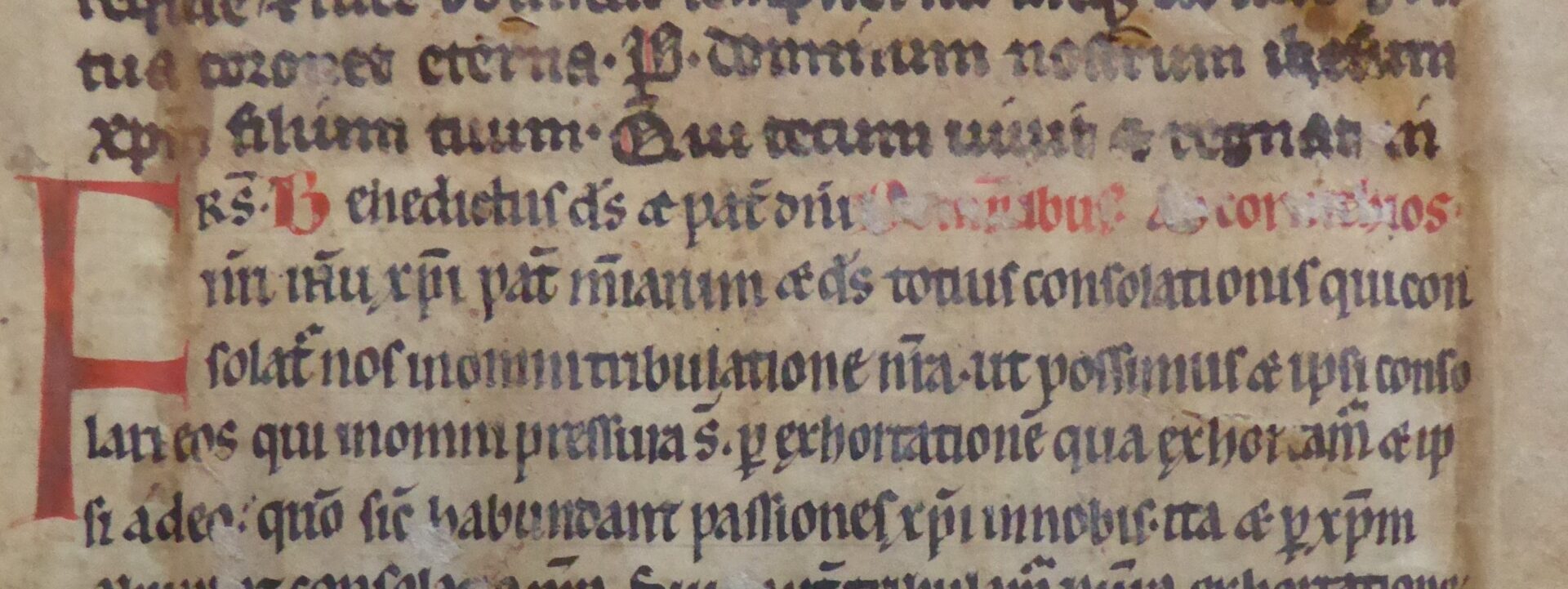
J.P. Osmond
King's College London
Project title:
Antonius Andreae’s Quaestiones de tribus principiis: an edition and study

Project Summary:
John Duns Scotus (c. 1265–1308) is often considered one of the most philosophically penetrating and influential figures of the Middle Ages. At the beginning of the fourteenth century, however, the prospect of such great influence may have seemed unlikely; partly because of the notorious difficulty of his thought, and partly because of the disordered state of his corpus at the time of his death. Much of the credit should in fact be given to Scotus’s immediate followers, who systematized his work into a more cohesive and, crucially, more teachable form. Among these founders of the Scotist school, the work of Antonius Andreae was perhaps the most successful; his Scotistic ‘curriculum’ was read across Europe well into the sixteenth century, to some extent even replacing Scotus’s own works as the school’s reference. As a cornerstone of this broader scheme, Antonius Andreae’s treatise on hylomorphism (the Aristotelian theory of matter and form) represents a basis for the study of natural philosophy in the fourteenth to sixteenth centuries.
My project thus examines a chapter in the formation of the Scotist school, which would soon wield tremendous influence in the late medieval and early modern universities. Since the text has not been edited, one aim of this project is to provide a foundation for research into its widespread reception by producing a critical edition. Being in the Philosophy department, my other, complementary intention is to study the relation of Antonius Andreae’s thought to that of Scotus himself and assess the former’s originality as a philosopher. In at least two respects, the systematizing nature of Antonius Andreae’s project placed considerable strain on his professed fidelity to Scotus’s teaching: one the one hand, the necessity for innovation in applying a Scotistic perspective to questions which Scotus himself had not addressed; on the other, the need to form a single, cogent position on questions which Scotus had treated variously – and sometimes inconsistently – in different works. It is out of this interpretative latitude that the real question, both philosophical and historical, emerges: just how truly ‘Scotistic’ is the Scotism of Antonius Andreae?